Whetten David A., Cameron Kim S. Developing management skills
Подождите немного. Документ загружается.

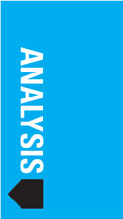
MOTIVATING OTHERS CHAPTER 6 357
CONSULTANT: What are the positive aspects of your daily work?
PAT: Well, the people here are all great to work with. They know their stuff or can
learn quickly. I tend to be a social person and I really like socializing with these
people. We play softball and basketball together and do happy hours and stuff. I like
that. I’ve got some good friends here, which helps get my work orders filled quickly, if
you know what I mean.
Bob Christensen, Member of the Technical Staff
CONSULTANT: You said earlier that Steve was your adviser for your M.S. So
you’ve known him a long time.
BOB: Yes, that’s right. I’ve known Professor Morgan—Steve—for about eight
years. I had him for a few undergraduate classes; then, of course, he was my adviser for
my two-year master’s program, and now I’ve worked at Electro Logic (EL) for two years.
CONSULTANT: It seems as if you enjoy working with Steve.
BOB: Oh, yeah. But I really don’t get to work directly with him anymore. I’ll see
him at meetings and such, but that’s about it.
CONSULTANT: So he’s not your immediate supervisor?
BOB: No, but for the amount of time I spend with my supervisor, Steve might as
well be. My boss and I meet maybe once every three weeks for about an hour to see
if all is well. And that’s it. The rest of the time, I’m on my own. I used to talk to Steve
when I had questions, but he’s gotten so busy now that it’s hard to see him—you
need to make an appointment a few days in advance.
CONSULTANT: Do you think your supervisor treats all his staff this way?
BOB: To be honest, I have heard some complaints. In fact, about six months ago,
the situation was so bad, some other people and I had a meeting with him. He
promised that he would be more available to us and was, for about a month. Then we
got involved in a new proposal, so he made himself scarce again. So nothing’s really
changed. We’re coming up on finalizing the proposal now, and it’s important that I
see him, ask him questions. The last few drafts I’ve submitted to him, he’s returned,
rewritten in his own way, and with no explanation of the changes. Sometimes I think
he treats me like somebody who doesn’t know anything, as if I had no training what-
soever. I realize his neck is on the line with this project, but sometimes it seems that
he uses being busy to avoid talking to me.
Chris Chen, Research Scientist
CONSULTANT: What kind of characteristics should a person have if he/she wants
to work as a research scientist at Electro Logic (EL)?
CHRIS: Well, certainly technical knowledge is important. When I’ve interviewed
recent college grads for entry-level positions, I am always concerned with their GPA.
I like to see straight-A averages, if possible. But for experienced research scientists,
technical knowledge shows up in their publication records, mostly. So I’ll read their
papers. I also think a research scientist has to be highly self-motivated, not look to
others for praise and such. Particularly here. If you want someone to tell you you’ve
done a good job, you’ll be waiting a long time. It’s not clear to me that research sci-
entists really get the support we need from the rest of the staff here. Work orders are
often lost or put off for one reason or another. Senior members seem to get more
techs than scientists do, and they certainly get more attention from Steve. The rumor
is that these guys also get higher raises than the scientists; allegedly, this is to keep
pay at an equitable rate—you know, they’re supposedly more valuable to the com-
pany. Of course, everybody knows that most of the senior members are Steve’s old
graduate students, and so he takes care of them really well. One of the things that
358 CHAPTER 6 MOTIVATING OTHERS
really galls me is that I need to keep up my publication record to maintain my career
options. But publishing is frowned on because it takes time away from your work. I’ve
even been told that my work can’t be published because of proprietary rights or that
the defense department considers the information classified. However, if somebody
important is working with me and needs the publication, then it’s full steam ahead.
CONSULTANT: You sound pretty disgruntled with your work.
CHRIS: It’s not my work so much. I’m really very happy doing this work—it’s
cutting-edge, after all. The problem is I’m never quite sure where the work is going.
I do my part of a project, and unless I go out of my way to talk to other people, I never
find out the final results of the total project. That’s just something you learn to live
with around here—being part of a system that’s not particularly open.
Meg Conroy, Assistant to the Head of Administration
CONSULTANT: You’ve only been here a short time, is that correct?
MEG: That’s right—just a little over a year.
CONSULTANT: Why did you take the job?
MEG: Well, I was in my last semester of college and was looking for a job, like
most college seniors. My fiancé at the time—now he’s my husband—was already
working for Electro Logic (EL) and found out that there was an opening. So I applied.
CONSULTANT: So you were a business major in school?
MEG: Oh, no. I was a history major.
CONSULTANT: Do you like your job?
MEG: It has a lot to offer. I get paid pretty well for what I’m doing. And I’m learn-
ing a lot. I just wish the company would let me take some classes in administration,
like accounting. The auditors ask some pretty tough questions. Steve says we should
hire that expertise, but I’d still be responsible for supervising the people.
CONSULTANT: Is there any particular aspect about your job that you really find
satisfying?
MEG: Well, let me think. I guess I like the fact that I get to do a lot of different
tasks so that things don’t get so boring. I would hate to have to do the same thing,
day in and day out. A lot of times, I go to the library to do research on different
things, and that’s nice because it gets me out of the office.
CONSULTANT: What don’t you like about your job?
MEG: Well, I often get the feeling that administration isn’t taken seriously. You
know, the engineers could get along without us quite nicely, or so they seem to think.
The whole structure of the department shows that we’re the catch-all department: if you
don’t fit anywhere else, they put you in here. Perhaps some of that is because our
department is primarily women—in fact, I’ve been told that 95 percent of all the female
employees are in administration. Sometimes it’s hard to work with the engineers
because they treat you like you don’t know anything, and they always want things to be
done their way. Clearly, the engineers get the money and consideration and yet, well, we
do contribute quite a lot to the whole team, as Steve would say. But words of praise just
aren’t as impressive as actions. Sure, we get our birthday parties, but that still seems to
be a little patronizing. We rarely get to see what’s going on in the research area. I’ve
asked a number of engineers specific questions, and they just kind of look at me with a
blank stare and give me some really simplified answer. It seems to me if you want to
build a family, like the president says, you can’t treat administration like a bad relation.
P. J. Ginelli, Technician
CONSULTANT: I gather you’ve just been through your semiannual performance
appraisal. How did it go?
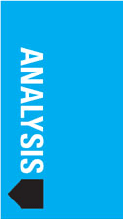
MOTIVATING OTHERS CHAPTER 6 359
P. J.: Like I expected. No surprises.
CONSULTANT: Do you find these appraisals useful?
P. J.: Sure. I get to find out what he thinks of my work.
CONSULTANT: Is that all?
P. J.: Well, I suppose it’s a nice opportunity to understand what my supervisor
wants. Sometimes he’s not so clear during the rest of the year. I suppose he’s been
given specific goals from higher-ups before he talks with me, so he’s clear and then
I’m clear.
CONSULTANT: Do you like what you’re doing?
P. J.: Oh yeah. The best part is that I’m not at the main building and so I don’t
have to put up with the “important” people, you know? I’ve heard from other techs
that those guys can be a real pain—trying to be nice and all, but really just being a
bother. I mean, how can you get your stuff done when the president’s looking over
your shoulder all the time? On the other hand, if the president knows your name, I
suppose that’s a good thing when it comes to raises and promotions. But my boss
sticks up for his techs; we get a fair deal from him.
CONSULTANT: Do you think you’ll be able to get ahead at Electro Logic (EL)?
P. J.: Get ahead? You mean become an engineer or something? No, and I really
don’t want to do that. Everyone around here keeps pushing me to move up. I’m afraid
to tell people how I really feel for fear they’ll decide I don’t fit into this high-tech envi-
ronment. I don’t want to be the “black sheep of the family.” I like where I am, and if
the raises keep coming, I’ll keep liking it. One of my kids is starting college next year,
and I need the money to help her out. I get a lot of overtime, particularly when con-
tract deadlines are near. I suppose the rush toward the end of contracts gives some
people big headaches, but for me, I don’t mind. The work is pretty slow otherwise,
and so at least I’m working all the time and then some. But my family wishes my
schedule was more predictable.
CONSULTANT: Do you think you’ll continue working for EL?
P. J.: I’m not sure I want to answer that. Let’s just say that my ratings on the per-
formance appraisal were good, and I expect to see an improvement in my pay. I’ll stay
for that.
Chalida Montgomery, Technician
CONSULTANT: In general, what are your feelings about the work you do for
Electro Logic (EL)?
CHALIDA: Well, I feel my work is quite good, but I also feel that I perform rather
boring, tedious tasks. From what my supervisor says, the kinds of things I do are
what electrical engineering students do in their last year of classes. I gather their
final project is to make a circuit board, and that’s what I do, day in and day out.
CONSULTANT: What is it that you would like to do?
CHALIDA: Well, it would be nice to be able to offer some input into some of the
designs of these boards. I know I don’t have a PhD or anything, but I do have lots of
experience. But because I’m a tech, the engineers don’t really feel I’ve got much to
offer—even though I build the boards and can tell from the design which one will do
what the designer wants it to do. I also would like to maybe supervise other techni-
cians in my department. You know, some kind of advancement would be nice. As it is,
lots of techs ask me how to do things, and of course I help, but then they get the
credit. Around here, you have to have a piece of paper that says you’re educated
before they let you officially help other people.
360 CHAPTER 6 MOTIVATING OTHERS
Discussion Questions
1. Using the behavioral guidelines and Figure 6.5 as diagnostic aids, what are the
strengths and weaknesses of Electro Logic (EL) from a motivational perspective?
2. What are the high-priority action items you would include in a consulting report
to Steve Morgan, president of EL? Focus on specific actions that he could initiate
that would better use the abilities of the staff and foster a more motivating work
environment.

MOTIVATING OTHERS CHAPTER 6 361
SKILL
PRACTICE
EXERCISES FOR DIAGNOSING WORK
PERFORMANCE PROBLEMS
Proper diagnosis is a critical aspect of effective motivation management. Often, managers
become frustrated because they don’t understand the causes of observed performance prob-
lems. They might experiment with various “cures,” but the inefficiency of this trial-and-error
process often only increases their frustration level. In addition, the accompanying misunder-
standing adds extra strain to the manager-subordinate relationship. This generally makes the
performance problem even more pronounced, which in turn prompts the manager to resort
to more drastic responses, and a vicious downward spiral ensues.
The performance diagnosis model in Figure 6.7 offers a systematic way for managers
and subordinates to pinpoint collaboratively the causes of dissatisfaction and performance
problems. It assumes that employees will work hard and be good performers if the work
environment encourages these actions. Consequently, rather than jumping to conclusions
about poor performance stemming from deficiencies in personality traits or a bad attitude,
this diagnostic process helps managers focus their attention on improving the selection, job
design, performance evaluation, and reward-allocation systems. In this manner, the specific
steps necessary to accomplish work goals and management’s expectations are examined to
pinpoint why a worker’s performance is falling short.
The manager and low-performing subordinate should follow the logical discovery
process in the model, step by step. They should begin by examining the current percep-
tions of performance, as well as the understanding of performance expectations, and then
proceed through the model until the performance problems have been identified. The
model focuses on seven of these problems.
A. Perception Problem: “Do you agree your performance is below expectations?”
A perception problem suggests that the manager and subordinate have different
views of the subordinate’s current performance level. Unless this disagreement is
resolved, it is futile to continue the diagnostic process. The entire problem-solving
process is based on the premise that both parties recognize the existence of a
problem and are interested in solving it. If agreement does not exist, the manager
should focus on resolving the discrepancy in perceptions, including clarifying cur-
rent expectations (Problem 5).
B. Resources Problem: “Do you have the resources necessary to do the job well?”
Ability has three components, and these should be explored in the order shown in
the model. This order reduces a subordinate’s defensive reactions. Poor performance
may stem from a lack of resource support. Resources include material and personnel
support as well as cooperation from interdependent work groups.
C. Training Problem: “Is a lack of training interfering with your job performance?”
Individuals may be asked to perform tasks that exceed their current skill or knowl-
edge level. Typically, this problem can be overcome through additional training or
education.
D. Aptitude Problem: “Do you feel this is the right job/blend of work assignments for
you?” This is the most difficult of the three ability problems to resolve because it is
the most basic. If the resupply (providing additional resources) and retraining solu-
tions have been explored without success, then more drastic measures may be
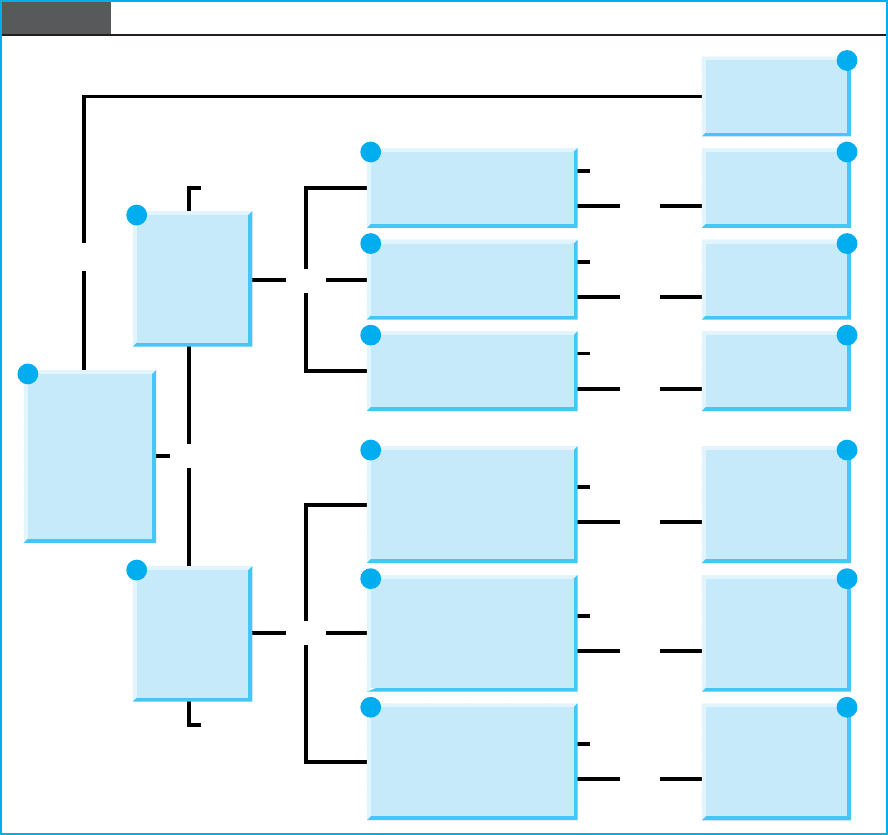
362 CHAPTER 6 MOTIVATING OTHERS
required. These include refitting the person’s current job requirements, reassigning
him or her to another position, or, finally, releasing him or her from the organization.
E. Expectations Problem: “What are your performance expectations for this posi-
tion? What do you think my expectations are?” This problem results from poor
communication regarding job goals or job requirements. In some cases, the stated
goals may be different from the desired goals. In other words, the employee is
working toward one goal while the supervisor desires another. This often occurs
when subordinates are not sufficiently involved in the goal- or standard-setting
process. When this results in unrealistic, imposed expectations, motivation suffers.
F. Incentives Problem: “Do you believe rewards are linked to your performance in
this position?” Either the individual does not believe that “performance makes a
difference” or insufficient performance feedback and reinforcement have been
given. The manager should also ask, “Do you feel rewards are being distributed
equitably?” This provides an opportunity to discuss subordinates’ criteria for
judging fairness. Often, unrealistic standards are being used.
Do both the
boss and
subordinate
agree that the
subordinate’s
performance
needs to be
improved?
1
This is a
PERCEPTION
problem.
A
This is a
RESOURCES
problem.
B
This is a
TRAINING
problem.
C
This is an
APTITUDE
problem.
D
This is an
EXPECTATIONS
problem.
E
This is an
INCENTIVES
problem.
F
This is a
SALIENCE
problem.
G
Is the lack of ability due
to inadequate resources
to do the job?
4
Is the lack of ability due
to inadequate training?
5
Is the lack of ability due
to inadequate aptitude?
6
Is the lack of motivation
the result of poorly
understood or
unmotivating
expectations?
7
Is the lack of motivation
the result of rewards not
being linked to job
performance or not
being fairly distributed?
8
Is the lack of motivation
the result of rewards
available to high
performers not being
salient to this person?
9
Does this
problem
stem from
inadequate
subordinate
ability?
2
Does this
problem
stem from
inadequate
subordinate
motivation?
3
NO
(Go to 3)
NO
(Go to 2)
NO
(Go to 7 or 8)
YES
YES
NO
(Go to 7 or 9)
YES
NO
(Go to 8 or 9)
YES
NO
(Go to 4 or 5)
YES
NO
(Go to 4 or 6)
YES
NO
(Go to 5 or 6)
YES
YES
NO
YES
Figure 6.7 Performance Diagnosis Model
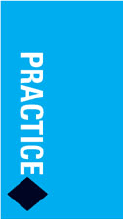
MOTIVATING OTHERS CHAPTER 6 363
G. Salience Problem: “Are the performance incentives attractive to you?” Salience
refers to the importance an individual attaches to available rewards. Often, the
incentives offered to encourage high performance are not highly valued by a par-
ticular individual. Managers need to be creative in generating a broad range of
rewards and flexible in allowing subordinates to choose among rewards.
Assignment
Option 1:
Read the case, “Joe Chaney,” and privately use the diagnostic model (see Figure 6.7) to pin-
point plausible performance problems. Next, discuss in small groups your individual assess-
ments and list specific questions you should ask Joe to accurately identify, from his point of
view, the obstacles to his high performance. Finally, brainstorm ideas for plausible solutions.
Prepare to represent your group in role-playing a problem-solving interview with Joe.
Option 2:
Administer the Work Performance Assessment survey to several employees. Using the
scoring key at the end of this chapter, categorize the obstacles to high performance and sat-
isfaction reported by the respondents. Then get together in small groups, with each group
assuming the role of a management task force charged with the responsibility to analyze
this employee survey data. Discuss the patterns in the data as well as possible remedies for
these problems, using the behavioral guidelines and motivational models in the chapter as
guides. Prepare a report on your analysis and recommendations for specific changes.
Joe Chaney
Joe Chaney joined your architectural firm two years ago as a draftsman. He is 35 years old
and has been a draftsman since graduating from a two-year technical school right after
high school. He is married and has four children. He has worked for four architectural
firms in 12 years.
Joe came with mediocre recommendations from his previous employer, but you
hired him anyway because you needed help desperately. Your firm’s workload has been
extremely high due to a local construction boom. The result is that a lot of the practices
that contribute to a supportive, well-managed work environment have been overlooked.
For instance, you can’t remember the last time you conducted a formal performance
review or did any career counseling. Furthermore, the tradition of closing the office early
on Friday for a social hour was dropped long ago. Unfortunately, the tension in the office
runs pretty high some days due to unbearable time pressures and the lack of adequate
staff. Night and weekend work have become the norm rather than the exception.
Overall, you have been pleasantly surprised by Joe’s performance. Until recently, he
worked hard and consistently produced high-quality work. Furthermore, he frequently
volunteered for special projects, made lots of suggestions for improving the work envi-
ronment, and has demonstrated an in-depth practical knowledge of architecture and the
construction business. However, during the past few months, he has definitely slacked
off. He doesn’t seem as excited about his work, and several times you have found him
daydreaming at his desk. In addition, he has gotten into several heated arguments with
architects about the specifications and proper design procedures for recent projects.
After one of these disagreements, you overheard Joe complaining to his officemate,
“No one around here respects my opinion. I’m just a lowly draftsman. I know as much as
these hotshot architects, but because I don’t have the degree, they ignore my input, and
I’m stuck doing the grunt work. Adding insult to injury, my wife has had to get a job to
help support our family. I must be the lowest-paid person in this firm.” In response to a
question from a coworker regarding why he didn’t pursue a college degree in architecture,
364 CHAPTER 6 MOTIVATING OTHERS
Joe responded, “Do you have any idea how hard it is to put bread on the table, pay a
Seattle mortgage, work overtime, be a reasonably good father and husband, plus go to
night school? Come on, be realistic!”
Work Performance Assessment
Respond to the following statements, based on your current work situation.
Rating Scale
1 Strongly disagree
2 Disagree
3 Neutral
4 Agree
5 Strongly agree
______ 1. My supervisor and I agree on the quality of my performance.
______ 2. I feel I have adequate training to perform my current job assignments.
______ 3. I believe that my native skills and abilities are matched very well with my job
responsibilities.
______ 4. I believe that I have adequate resources and supplies to do my job well.
______ 5. I understand my boss’s expectations and generally feel they are realistic.
______ 6. I believe that rewards are distributed fairly, on the basis of performance.
______ 7. The rewards and opportunities available to me if I perform well are attractive to
me personally.
______ 8. My supervisor indicates that I am not performing as well as I should, but I disagree.
______ 9. I could do a much better job if I had more training.
______ 10. I believe that my job is too difficult for my ability level.
______ 11. I believe that my job performance is hindered by a lack of supplies and resources.
______ 12. I believe my boss’s expectations are unclear and unrealistic.
______ 13. I believe my boss plays favorites in allocating rewards.
______ 14. I do not find the rewards and opportunities available to high performers very
appealing.
EXERCISE FOR RESHAPING
UNACCEPTABLE BEHAVIORS
Shaheen Matombo
One of the most challenging aspects of management is transforming inappropriate
behaviors into appropriate behaviors. Managers commonly take insufficient action to
transform negative actions into positive ones. Some of these insufficient responses
include assuming that ignoring an employee’s shortcomings will make them go away;
praising positive aspects of an individual’s performance in hopes that this will encourage
him or her to rechannel unproductive energies; discussing problems in vague, general
terms in a group meeting, in hopes that the unproductive person will “take a hint” and
change; and getting upset with an individual and demanding that he or she “shape up.”
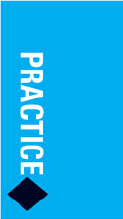
MOTIVATING OTHERS CHAPTER 6 365
Assignment
Assume the role of Andre Tate in the following case. After reading the case, review the
applicable behavioral guidelines shown on the Observer’s Feedback Form at the end of
the chapter. In small groups, discuss how you would resolve this problem. Prepare to role-
play your discussion with Shaheen Matombo. After the discussion, assigned observers will
provide feedback on your performance, using the Observer’s Feedback Form as a guide.
Unless you are assigned to play her role, do not read the role instructions for Shaheen prior
to the interview.
Andre Tate, Manager
Shaheen has been a member of your staff for only three months. You don’t know much
about her other than that she is a single parent who has recently entered the workforce
after a difficult divorce. She is often 10 to 20 minutes late for work in the morning. You are
the manager of a very hectic customer relations office for a utility company. The phones
start ringing promptly at 8:00. When she is late for work, you have to answer her phone,
and this interrupts your work schedule. This morning, you are particularly annoyed. She is
25 minutes late, and the phones are ringing like crazy. Because you have been forced to
answer them, it will be difficult for you to complete an important assignment by the noon
deadline. You are getting more upset by the minute.
While you are in the middle of a particularly unpleasant phone conversation with an
irate customer, you look out your window and see Shaheen bounding up the steps to the
building. You think to yourself, “This is ridiculous, I’ve got to put a stop to her tardiness.
Maybe I should just threaten to fire her unless she shapes up.” Upon further reflection,
you realize that would be impractical, especially during this period of retrenchment after
the rate hike was turned down. Given the rumors about a possible hiring freeze, you
know it may be difficult to refill any vacancies.
Also, Shaheen is actually a pretty good worker when she is there. She is conscientious
and has a real knack with cranky callers. Unfortunately, it has taken her much longer than
expected to learn the computer program for retrieving information on customer accounts.
She frequently has to put callers on hold while she asks for help. These interruptions have
tended to increase an already tense relationship with the rest of the office staff. She has had
some difficulty fitting in socially; the others are much younger and have worked together
for several years. Shaheen is the first new hire in a long time, so the others aren’t used to
breaking someone in. Three of your staff have complained to you about Shaheen’s constant
interruptions. They feel their productivity is going down as a result. Besides, she seems to
expect them to drop whatever they are doing every time she has a question. They had
expected their workload to be lighter when a new person was hired, but now they are hav-
ing second thoughts. (In the past, you have had enough time to train new hires, but your
boss has had you tied up on a major project for almost a year.)
Shaheen enters the office obviously flustered and disheveled. She has “I’m sorry”
written all over her face. You motion for her to pick up the blinking phone line and then
scribble a note on a tablet while you complete your call: “See me in my office at 12:00
sharp!” It’s time you got to the bottom of Shaheen’s disruptive influence on an otherwise
smooth-flowing operation.
Shaheen Matombo, Staff Member
Boy, what a morning! Your babysitter’s father died during the night, and she called you
from the airport at 6:30 A.M. saying she would be out of town for three or four days. You
tried three usually available backups before you finally found someone who could take
Keen, your 3-year-old. Then Shayla, your seventh-grader, went through five outfits before
she was satisfied that she had just the right look for her first yearbook picture. It’s a
366 CHAPTER 6 MOTIVATING OTHERS
miracle that Buddy, your oldest, was able to pull himself out of bed after getting only five
hours of sleep. On top of football and drama, he’s now joined the chess team, and they
had their first tournament last night. Why did it have to fall on the night before his final in
physics? This morning you wished you had his knack for juggling so many activities. By
the time you got the kids delivered, you were already 10 minutes behind schedule. Then
there was this incredible accident on the expressway that slowed traffic to a crawl.
As you finally pull off the downtown exit ramp, you notice you’re almost 20 minutes
late for work. “My kingdom for a cell phone!” you groan. “Although by now I probably
couldn’t get an open line into the office, anyway.” As you desperately scan the side streets
for a parking space, you begin to panic. “How am I going to explain this to Andre? He’ll
be furious. I’m sure he’s upset about my chronic lateness. On top of that, he’s obviously
disappointed with my lack of computer skills, and I’m sure the others complain to him
about having to train a newcomer.” You’re sure that one of the reasons you got the job
was that you had completed a computer class at the local community college.
Unfortunately, there hadn’t been much carryover to the incredibly complex computer
program you use at work. (It seems to defy every convention of logic.)
“What am I going to tell him about my being late for work so often?” Unfortunately,
there isn’t an easy answer. “Maybe it will get better as the kids and I get used to this new
routine. It’s just very difficult to get the kids to the bus stop and the sitter, commute
20 minutes, and arrive precisely at 8:00. I wonder if he would allow me to come in at
8:30 and only take a half-hour lunch. Staying late wouldn’t work because they close
down the computers at 5:00, unless there was some paperwork I could do for half
an hour.”
Then what about the problems with the computer and the other staff members?
“Sooner or later he’s going to get on my case about those things. Is it my fault I don’t
think like a computer? Some people might be able to sit down and figure this program out
in a couple of hours, but not me. So is that my fault or should someone be giving me more
training? I wish the others weren’t so cliquish and unwilling to help me out. I wonder
why that’s the case. It’s like they’re afraid I’ll become as good as they are if they share
their experience with me. I wish Andre had more time to help me learn the ropes, but he
seems to always be in meetings.”
“Well, I’m probably going to catch it this morning. I’ve never been this late. Maybe
I’ll be back home full time sooner than I expected.”
